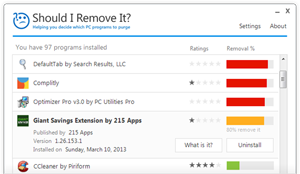Import table
advapi32.dll
StartServiceA, QueryServiceStatus, RegCreateKeyExA, SetServiceStatus, RegisterServiceCtrlHandlerA, StartServiceCtrlDispatcherA, RegisterEventSourceA, ReportEventA, DeleteService, CreateServiceA, RegCreateKeyA, RegSetValueExA, RegCloseKey, OpenSCManagerA, OpenServiceA, CloseServiceHandle, DeregisterEventSource, ControlService
kernel32.dll
WaitForMultipleObjects, LocalFree, LocalAlloc, GetTickCount, GetProcAddress, LoadLibraryA, WaitForSingleObject, CreateEventA, SetEvent, CloseHandle, GetLastError, Sleep, CreateDirectoryA, GetModuleFileNameA, GetShortPathNameA, RaiseException, HeapSize, CompareStringA, CompareStringW, SetEnvironmentVariableA, FreeLibrary, InterlockedIncrement, WriteFile, WideCharToMultiByte, GetConsoleCP, GetConsoleMode, GetTimeFormatA, GetDateFormatA, GetFileAttributesA, GetSystemTimeAsFileTime, RtlUnwind, ExitThread, GetCurrentThreadId, CreateThread, GetCommandLineA, TerminateProcess, GetCurrentProcess, UnhandledExceptionFilter, SetUnhandledExceptionFilter, IsDebuggerPresent, GetCPInfo, FlushFileBuffers, InterlockedDecrement, GetACP, GetOEMCP, IsValidCodePage, GetModuleHandleW, TlsGetValue, TlsAlloc, TlsSetValue, TlsFree, SetLastError, WriteConsoleA, GetConsoleOutputCP, WriteConsoleW, MultiByteToWideChar, SetFilePointer, SetHandleCount, GetStdHandle, GetFileType, GetStartupInfoA, DeleteCriticalSection, SetStdHandle, EnterCriticalSection, LeaveCriticalSection, HeapFree, GetTimeZoneInformation, HeapAlloc, CreateFileA, ExitProcess, FreeEnvironmentStringsA, GetEnvironmentStrings, FreeEnvironmentStringsW, GetEnvironmentStringsW, HeapCreate, VirtualFree, QueryPerformanceCounter, GetCurrentProcessId, LCMapStringA, LCMapStringW, GetStringTypeA, GetStringTypeW, GetLocaleInfoA, InitializeCriticalSectionAndSpinCount, VirtualAlloc, HeapReAlloc, SetEndOfFile, GetProcessHeap, ReadFile

